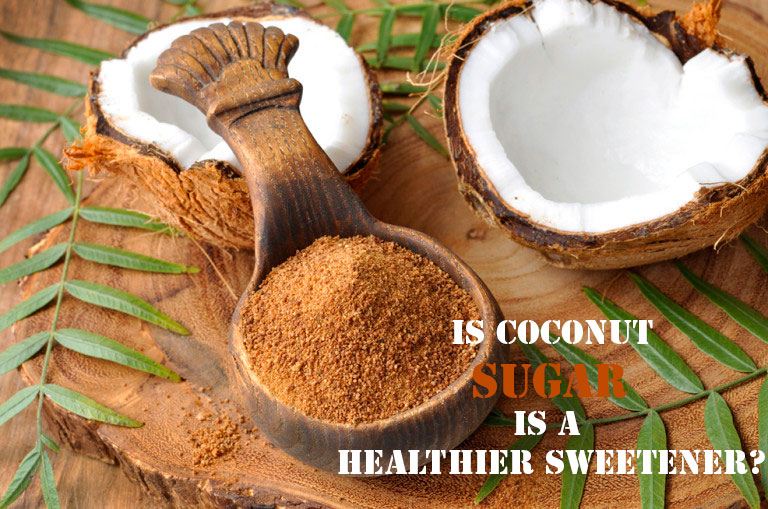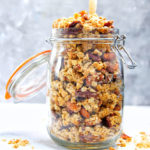Is Coconut Sugar Is A Healthier Sweetener?
All things COCONUT have become more and more popular lately . . . and I often get asked if there’s any truth behind it.
Let’s first talk about coconut sugar: it’s more accurately coconut palm sugar, and is made from sap of the coconut palm tree. The sap has been extracted and then boiled and dehydrated.
It provides the same number of calories and carbohydrates as regular cane sugar (about 15 calories and four grams of carbohydrate per teaspoon) so you wouldn’t be gaining any advantage in these respects by making a switch.
However, coconut sugar is 70 to 79% sucrose and only 3% to 9% each of fructose and glucose. This is an advantage, because you want to keep your consumption of fructose as low as possible (cane sugar is 50% fructose).
Coconut sugar is caramel colored with a taste that is similar to that of brown sugar and can be substituted for cane sugar in most recipes. (Note: don’t confuse coconut palm sugar with palm sugar, which is derived from the sugar palm tree. Palm sugar is often used in Thai dishes.)
One of the big selling points – and health claims – for coconut sugar is that it is low on the glycemic index, which ranks carbohydrate foods on the basis of how they affect blood sugar (glucose). This is irrelevant. The glycemic index does not directly apply to sweeteners. Fructose ranks very low on it because the body cannot derive energy from it. I recommend cutting down on sweeteners of all types, and especially fructose.
If you want to try coconut sugar, shop carefully and read the labels before buying: some brands may be mixed with cane sugar and other ingredients. You’ll find products described as “coconut crystals,” “coconut sugar” or “coconut palm sugar,” and you’ll probably notice that they are more expensive than regular cane sugar. I checked prices online and saw that they ranged from about $4 to $15 per pound.
BOTTOM LINE: It is okay for people to use coconut palm sugar as a sweetener, but they should treat it the same as table sugar (especially if you’re diabetic).
Know that there isn’t much difference between white table sugar and other natural sugars including coconut, honey, maple syrup (my personal favorite), molasses and sorghum. To the body, they are all sugar to be converted to glucose for metabolic fuel. On a side note, another popular sweetener, agave nectar can be 85% fructose, while maple syrup is about 35%.


 Your email address will never be shared, period.
Your email address will never be shared, period.










